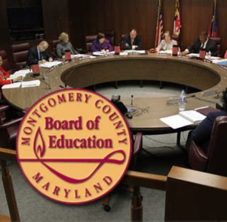In State reform needed to make politics fairer, Council Member Evan Glass lauds the public campaign financing programs available in Maryland, and seeks to expand such programs to allow beneficiaries of the funding to purchase tickets to networking and community events. Such an amendment will further “level the playing field” for candidates running campaigns with public monies.
Mr. Glass is a member of the four-member at-large contingent on the County Council. As has been discussed at length since the 2020 Question D referendum, multi-member at-large representation is a voting-rights violation because a small group of voters elects all the winners. We saw this as recently as the Democratic primaries in 2022, when each of our four at-large council members won no more than 19% of the vote. I have come to personally admire Mr. Glass for uncompromising dedication to his voters, skill at running a winning campaign, and most of all his energy. Nevertheless, fully 81% of the Democrats stated quite clearly that they did not want him or the other at-large members to advance to the general election, which means only 19% of the Democrats elected all of the winning at-large representatives. Outcomes such as this are the reason why voting rights activists and Supreme Court Justices (from Sandra Day O’Connor to Ruth Bader Ginsburg) routinely excoriate multi-member at-large representation.
It’s not clear that public campaign financing really does level a playing field. A more accurate representation is that such financing favors the voters who comprise the winners’ plurality. If Mr. Glass (or Ms. Mink or Ms. Stewart or County Executive Mr. Elrich) cannot garner majority votes in their primaries, then why should a belabored tax base finance their losing campaigns? Put another way, why should voters be forced to finance a campaign that they oppose in the first place?
If we really want to make elections fairer, we must adopt two reforms at the local level. First, eliminate the at-large contingent on the county council. Allowing 19% of the county’s Democrats (actually 19% of the Democrats who bother to vote in the primary elections) to determine all the winners is hardly a level playing field. Second, eliminate plurality wins in the primaries by demanding majority wins to proceed to a general election. Majority wins can be effected by ranked-choice voting, an instant runoff protocol that guarantees the true expression of voters’ preference. Both of these reforms can be mandated at the county level by state legislation. These two reforms, in my mind, are far more important and urgent than allowing disbursement of public election funds to networking events.




